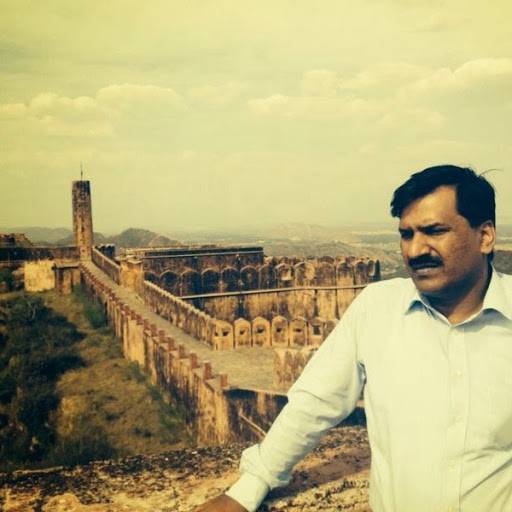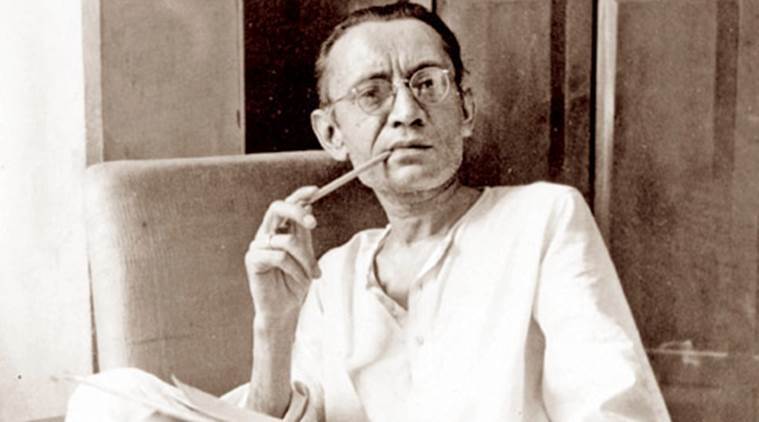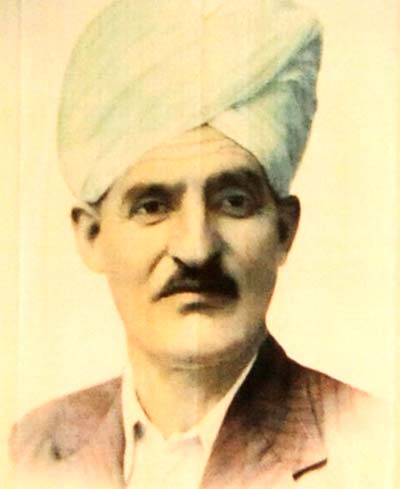
The pain of the Kashmir valley seems to have become even more audible than before. Despite the seeming silence caused due to media clampdown, the world has begun to notice the unhappiness inside Kashmir which in itself is not new. The tragedy of Kashmir is something that many men of letters have noticed and expressed in the past such as the famous Urdu writer Saadat Hassan Manto.
Though he never lived or visited Kashmir, Manto was conscious of his Kashmiri roots. He talked about it in the same language as Kashmir is generally remembered – as “being beautiful was the second meaning of being Kashmiri”. This is how he described the place in a letter written to Jawaharlal Nehru.
Known for his intense post-partition stories, it was not common for Manto to write about Kashmir. Besides the letter to Nehru, the one other place that he passionately remembered the place of his heritage was in an Urdu magazine called Nusrat.
Published by Hanif Ramay, a politician from Pakistan’s Punjab who also served as the province’s chief minister during the 1970s and was reputed as one of the authors of Zulfiqar Ali Bhutto’s concept of Islamic socialism, the Nusrat issued a Kashmir number in 1960.
That's where I found an article by Manto on Kashmir. This is a piece in which he used a Kashmiri poet, Ghulam Ahmad Mehjoor or Mehjoor Kashmiri, as he was commonly known, to talk about his own association with the place.
 Originally written in 1952, the piece was meant as a preface to a short collection of poems by Mehjoor Kashmiri that was translated into Urdu by Lahore-based poet and writer Naseer Anwar. The piece titled ‘Teen Hato’ denotes Manto’s fond remembrance for a land of his imagination that he had never visited but heard spoken about with great love and admiration by his father. The latter would tell his son about 17th century Kashmiri poets like Ghani Kashmiri, whose fame had spread as far as Persia. Moreover, he would demonstrate affinity for his ethnic identity by inviting Kashmiri labourers or ‘Hato’ to his home, talk to them and later tell them “I am Kashmiri too’. Though Manto found his father’s actions hilarious, these memories overwhelmed him at a later stage in his life, making him write about it, except that he used Mehjoor as his lens.
Originally written in 1952, the piece was meant as a preface to a short collection of poems by Mehjoor Kashmiri that was translated into Urdu by Lahore-based poet and writer Naseer Anwar. The piece titled ‘Teen Hato’ denotes Manto’s fond remembrance for a land of his imagination that he had never visited but heard spoken about with great love and admiration by his father. The latter would tell his son about 17th century Kashmiri poets like Ghani Kashmiri, whose fame had spread as far as Persia. Moreover, he would demonstrate affinity for his ethnic identity by inviting Kashmiri labourers or ‘Hato’ to his home, talk to them and later tell them “I am Kashmiri too’. Though Manto found his father’s actions hilarious, these memories overwhelmed him at a later stage in his life, making him write about it, except that he used Mehjoor as his lens.
Manto empathises with Mehjoor’s suffering that is compounded with an inner strength of tolerating oppression. Driven by his inner trauma about partition and leaving a place he called 'home', Manto fancies the poet for opting to stay on and bear the burden:
But this piece is not just about rebellion or bearing oppressive rule but, as mentioned earlier, a general lament about partition that in Manto’s mind had damaged tolerance and peace in the Subcontinent. In fact, he talks about peace and common heritage as something that could subvert violence in the valley and the need to convince people to live together despite their communal, religious and other differences.
In the piece in Nusrat, Manto talks about how India and Pakistan’s leaders like Nehru and Khwaja Nazimudin ought to look at their common link with Kashmir as a source of possible dialogue and negotiation of peace. “You could not expel Gog and Bhat (turnip and rice) from your cuisine then why do you fight?”
The writer’s mention of Mehjoor also seems parabolical – dialogue as a means for peace which is why Manto mentions in his piece that if Mehjoor was brought back there would be no need left for Dr Graham, the UN mediator. This refers to the thought, perhaps, that Mehjoor’s connectedness with his roots and the power of belonging to the land have greater capacity to solve problems. Yet, this is not the path that Kashmir took.
Wonder what Manto would have thought today had he seen how the Kashmiris have instead followed not Manto’s trail of thought but Mehjoor’s revolutionary instinct and his belief in freedom.
Though he never lived or visited Kashmir, Manto was conscious of his Kashmiri roots. He talked about it in the same language as Kashmir is generally remembered – as “being beautiful was the second meaning of being Kashmiri”. This is how he described the place in a letter written to Jawaharlal Nehru.
Known for his intense post-partition stories, it was not common for Manto to write about Kashmir. Besides the letter to Nehru, the one other place that he passionately remembered the place of his heritage was in an Urdu magazine called Nusrat.
Published by Hanif Ramay, a politician from Pakistan’s Punjab who also served as the province’s chief minister during the 1970s and was reputed as one of the authors of Zulfiqar Ali Bhutto’s concept of Islamic socialism, the Nusrat issued a Kashmir number in 1960.
That's where I found an article by Manto on Kashmir. This is a piece in which he used a Kashmiri poet, Ghulam Ahmad Mehjoor or Mehjoor Kashmiri, as he was commonly known, to talk about his own association with the place.
 Originally written in 1952, the piece was meant as a preface to a short collection of poems by Mehjoor Kashmiri that was translated into Urdu by Lahore-based poet and writer Naseer Anwar. The piece titled ‘Teen Hato’ denotes Manto’s fond remembrance for a land of his imagination that he had never visited but heard spoken about with great love and admiration by his father. The latter would tell his son about 17th century Kashmiri poets like Ghani Kashmiri, whose fame had spread as far as Persia. Moreover, he would demonstrate affinity for his ethnic identity by inviting Kashmiri labourers or ‘Hato’ to his home, talk to them and later tell them “I am Kashmiri too’. Though Manto found his father’s actions hilarious, these memories overwhelmed him at a later stage in his life, making him write about it, except that he used Mehjoor as his lens.
Originally written in 1952, the piece was meant as a preface to a short collection of poems by Mehjoor Kashmiri that was translated into Urdu by Lahore-based poet and writer Naseer Anwar. The piece titled ‘Teen Hato’ denotes Manto’s fond remembrance for a land of his imagination that he had never visited but heard spoken about with great love and admiration by his father. The latter would tell his son about 17th century Kashmiri poets like Ghani Kashmiri, whose fame had spread as far as Persia. Moreover, he would demonstrate affinity for his ethnic identity by inviting Kashmiri labourers or ‘Hato’ to his home, talk to them and later tell them “I am Kashmiri too’. Though Manto found his father’s actions hilarious, these memories overwhelmed him at a later stage in his life, making him write about it, except that he used Mehjoor as his lens.Manto empathises with Mehjoor’s suffering that is compounded with an inner strength of tolerating oppression. Driven by his inner trauma about partition and leaving a place he called 'home', Manto fancies the poet for opting to stay on and bear the burden:
I am ashamed of the fact that my ancestors migrated from Kashmir. To suffer the torments and oppression is a virtue while migration is an escape. Mehjoor sustained all the oppression. He suffered the biggest oppression, the mental torture but he didn’t waver and remain steadfast. The idea of migration didn’t cross his mind. He stayed where he was.
But this piece is not just about rebellion or bearing oppressive rule but, as mentioned earlier, a general lament about partition that in Manto’s mind had damaged tolerance and peace in the Subcontinent. In fact, he talks about peace and common heritage as something that could subvert violence in the valley and the need to convince people to live together despite their communal, religious and other differences.
In the piece in Nusrat, Manto talks about how India and Pakistan’s leaders like Nehru and Khwaja Nazimudin ought to look at their common link with Kashmir as a source of possible dialogue and negotiation of peace. “You could not expel Gog and Bhat (turnip and rice) from your cuisine then why do you fight?”
The writer’s mention of Mehjoor also seems parabolical – dialogue as a means for peace which is why Manto mentions in his piece that if Mehjoor was brought back there would be no need left for Dr Graham, the UN mediator. This refers to the thought, perhaps, that Mehjoor’s connectedness with his roots and the power of belonging to the land have greater capacity to solve problems. Yet, this is not the path that Kashmir took.
Wonder what Manto would have thought today had he seen how the Kashmiris have instead followed not Manto’s trail of thought but Mehjoor’s revolutionary instinct and his belief in freedom.
If you need to awaken the abode of petals, leave rhythms, flutes and other instruments
Earthquake, high winds, storms, lightening are the answer.

